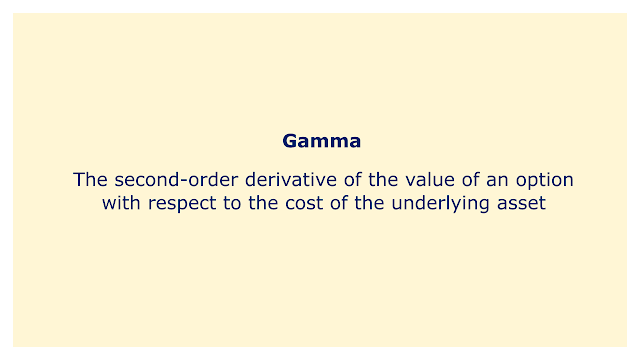 |
| Image: Moneybestpal.com |
Gamma, in the context of finance, is the second-order derivative of the value of an option with respect to the cost of the underlying asset. Gamma, in other words, gauges how quickly an option's delta changes in response to shifts in the value of the underlying asset.
It estimates how much an option's price will fluctuate in reaction to changes in the price of the underlying asset and is the first-order derivative of an option's value with regard to that price. The difference between the delta and the price of the underlying asset is measured by gamma, on the other hand.
Gamma plays a crucial role in the options market since it can assist traders and investors in controlling their exposure to risk. For instance, if a trader has a long position in an option with a high gamma, they should regularly monitor the price of the underlying asset because even minor changes in the underlying price could result in significant changes in the option's delta and, consequently, in its price. In contrast, if a trader holds a short position in an option with a high gamma, they will desire to reduce their risk exposure by acquiring a contrary position in the underlying asset or in another option.
